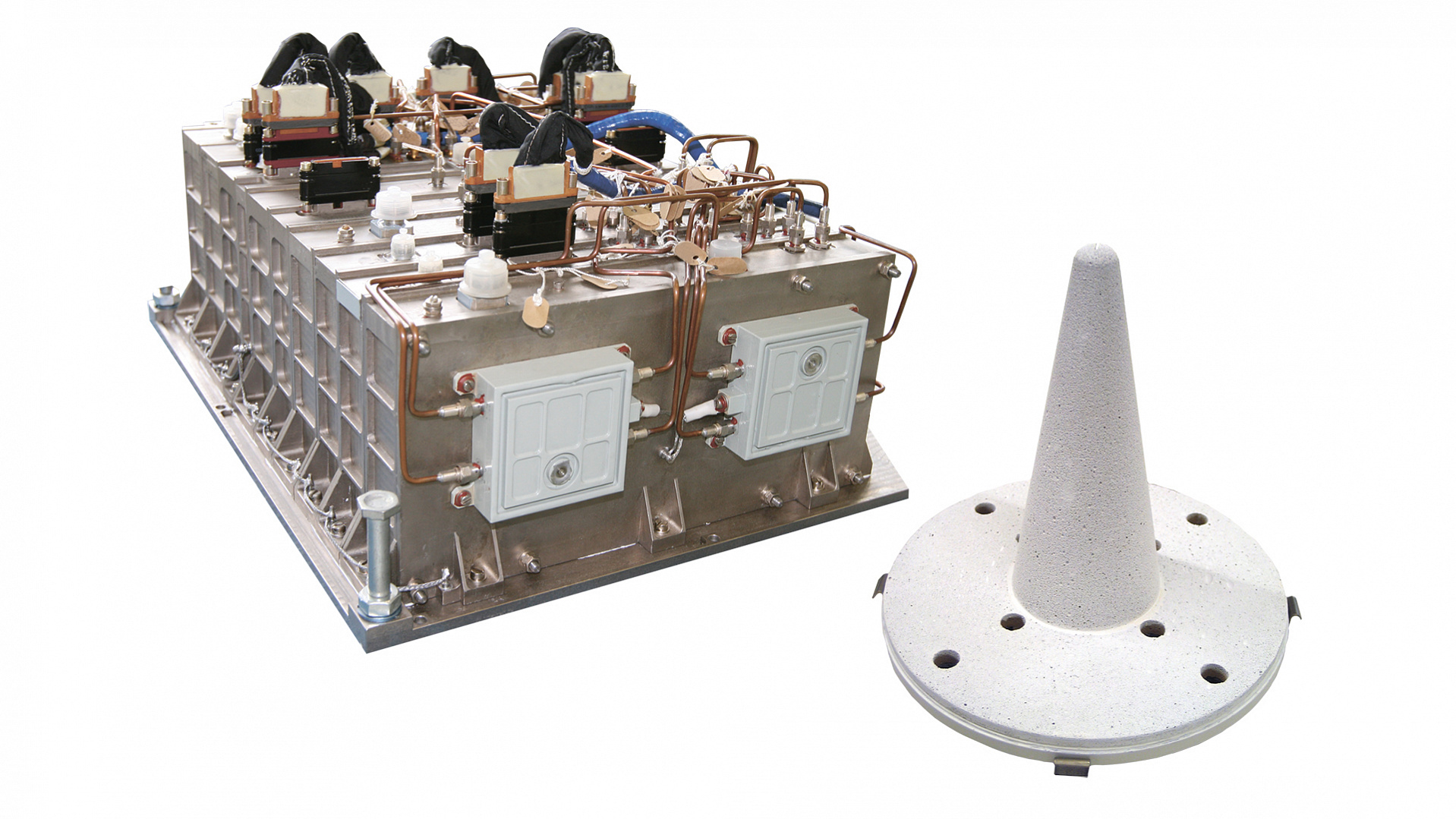Komparus at the service of ISS

Over a 20-year period, the Komparus command-and-measurement system (CMS), built at our Institute, has been operating aboard the International Space Station (ISS), carrying out automated control of the Zarya functional cargo block (FGB).
In addition to managing and monitoring the operations of the Zarya FGB, the Komparus CMS was used for automated control of the Ikar rocket upper stages; spacecraft Meteor-3M, Foton-M, Bion-M, Resurs-DK1, Coronas-Foton, Resurs-P, etc.
The Komparus system is the fourth generation of the CMS in the microwave range. Its development started at the beginning of the 1990s under the guidance of Yuri M. Galanternik, mission's chief designer. The team of scientists and engineers under his leadership was awarded the prize of the Government of the Russian Federation for building a unified set of the Komparus CMS highly reliable onboard radio engineering complexes with increased noise immunity for spacecraft control.
The Komparus represented the first automated CMS in Russian space practice to control low-Earth-orbit satellites designated for scientific, economic and international purposes.
Sergey Samokhin, Head of the RIPI’s Department, noted:
- Since the first Komparus CMS complexes were constructed, significant changes have occurred in terms of manufacturing hi-tech products for space sector, and specifically: the element base, the technology for creating printed circuit boards, the principles of hardware/software construction of such systems.
Consequently, in 2018, we completed the re-issue of design documentation for technical units, blocks, devices and the upgrade of the Komparus system. The development of next-generation onboard instrumentation for Komparus system is under way.
The ground-based spacecraft control complex, also designed at RIPI, conducted automated flight control of spacecraft at all its various phases together with the onboard CMS equipment through carrying out all necessary functions, required to provide well-functioning, such as: information, ballistic, telemetry support, etc.
Selected principles upon which the System is built, ensure reliable constellation management with a capacity of 120 object-control sessions over a 24-hour period.
The System provides the opportunity to combine the processes of receiving/transmitting commands and trajectory measurement data within one radio link. Measuring the spacecraft current navigation parameters (trajectory measurements) is carried out with an accuracy, sufficient to make long-term predictions of orbit parameters for satellites of different types.
Authenticity of transmission of vast arrays of information, used in control loop over uplinks and downlinks, is realized through application of the special coding of information and decision feed-back. The pseudonoise signals are used to ensure interference immunity of radio link.
To increase data transmission rate to spacecraft for Komparus CMS instruments, the technique for transmitting information messages without waiting for receipts responded to transmitted elementary messages was applied, and in this case receipts delay equal to the transmission time of 3-10 elementary messages is allowed. Deep redundancy of onboard instruments permits preventing possible failures and false positives.
RIPI’s engineers and scientists also established an effective multi-stage rigorous ground testing system for each set of on-board equipment and its components with the use of checkout equipment.
Autonomous testing is carried out at the onboard equipment manufacturer’s, and as part of comprehensive tests and pre-launch preparation at the spacecraft manufacturer’s and at the launch site.
RIPI Press Service